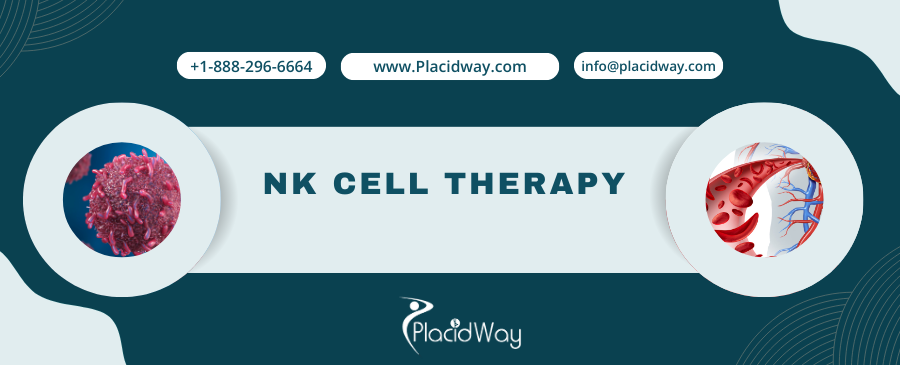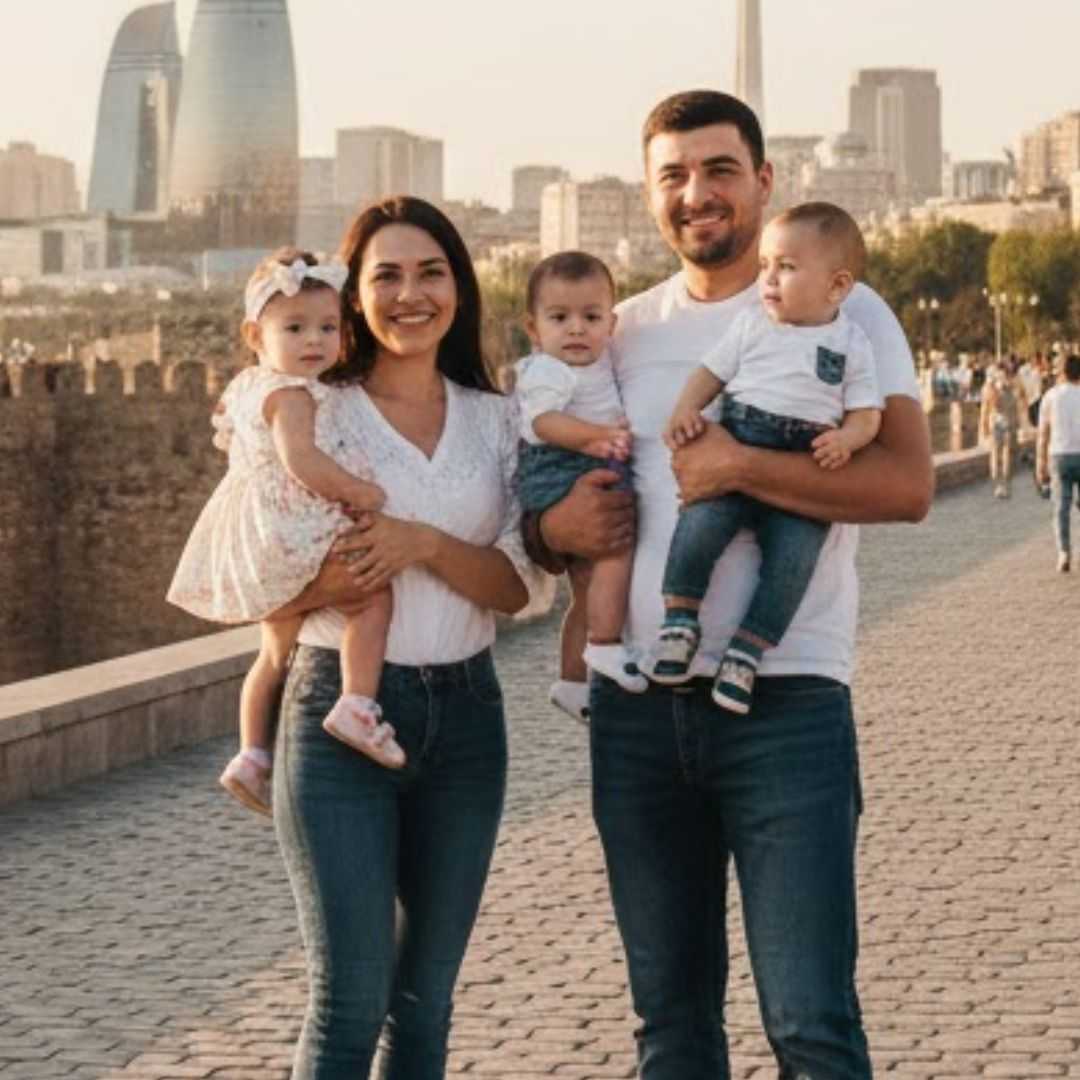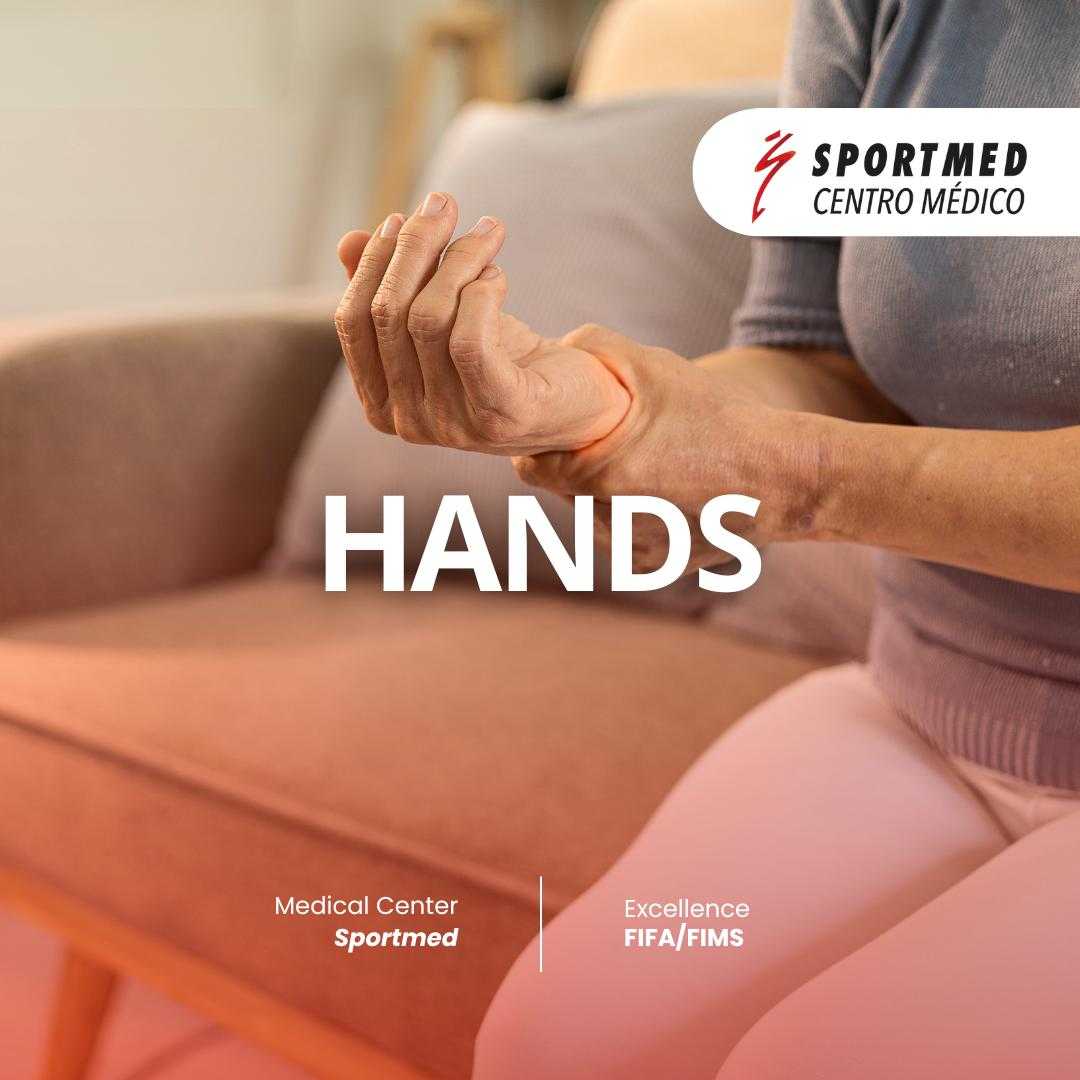
Unleashing Your Body's Defenders: A Guide to Natural Killer (NK) Cell Therapy Abroad
Navigating a serious health diagnosis can be overwhelming, especially when traditional treatments fall short or come with significant side effects. For many, hope lies in cutting-edge therapies that harness the body's own power to heal. Natural Killer (NK) Cell Therapy is one such revolutionary approach, offering a beacon of hope for individuals battling conditions like cancer, autoimmune disorders, and chronic infections. Imagine an army of highly specialized cells, inherently programmed to identify and eliminate threats, being amplified and directed to target your specific health challenges.
This advanced immunotherapy leverages your body's natural killer cells – a crucial component of your innate immune system – to precisely identify and destroy abnormal cells, without needing prior exposure or activation. Unlike some more aggressive treatments, NK Cell Therapy is generally well-tolerated, making it an attractive option for those seeking effective yet less invasive solutions. While still considered emerging in some regions, its availability and success stories are growing worldwide, leading many patients to explore treatment options abroad.
In this comprehensive guide, we'll delve deep into Natural Killer Cell Therapy, exploring how it works, what conditions it treats, potential benefits, and why so many are looking beyond their borders to access this life-changing treatment. Whether you're researching "NK cell therapy for cancer," "autoimmune disease NK cells," or simply wondering about "NK cell therapy cost" and "where to get NK cell therapy," you'll find the answers you need to make informed decisions about your health journey.
What is Natural Killer (NK) Cell Therapy and how does it work?
Natural Killer (NK) cells are a type of white blood cell, an essential part of your innate immune system. Think of them as your body's elite "first responders" – they are always on patrol, ready to detect and destroy cells that are infected with viruses or have become cancerous, without needing prior sensitization. They don't require specific antigens to recognize threats, making them incredibly versatile and rapid in their response.
NK Cell Therapy amplifies this natural defense mechanism. The process typically involves:
- Harvesting: NK cells are collected from your own blood (autologous) or from a healthy donor's blood (allogeneic). In some cases, umbilical cord blood is used as a rich source of NK cells for allogeneic therapy.
- Activation and Expansion: The harvested cells are then sent to a specialized laboratory where they are activated and multiplied (expanded) to create a much larger, more potent army of NK cells. This "supercharging" process makes them even more effective at identifying and eradicating abnormal cells.
- Reinfusion: Once expanded, these highly potent NK cells are infused back into your bloodstream, usually intravenously, much like a blood transfusion. They then circulate throughout your body, seeking out and destroying diseased cells.
Unlike T-cell therapies (like CAR-T), NK cells have a unique advantage: they can distinguish between healthy and diseased cells without causing significant harm to healthy tissues, leading to a generally milder side effect profile. This makes "how does NK cell therapy work" an intriguing question for many exploring advanced immunotherapies.
What conditions can NK Cell Therapy help with, and what are their symptoms?
The versatility of NK cells allows this therapy to address a broad spectrum of health challenges. Patients often search for "NK cell therapy for cancer," "NK cell therapy for autoimmune diseases," or "NK cell therapy for chronic fatigue syndrome" due to its potential in these areas:
Cancers
NK cells are naturally adept at detecting and eliminating cancer cells. NK Cell Therapy has shown promise in treating various malignancies, including:
- Leukemia and Lymphoma: Cancers of the blood and lymphatic system. Symptoms often include persistent fatigue, unexplained fever, night sweats, swollen lymph nodes, and recurrent infections.
- Solid Tumors: Such as lung cancer, breast cancer, colon cancer, ovarian cancer, and glioblastoma. Symptoms vary greatly depending on the tumor's location but can include pain, lumps, weight loss, and organ dysfunction. NK cells can infiltrate solid tumors and overcome their defense mechanisms.
- Post-transplant Relapse: Preventing recurrence after bone marrow or stem cell transplants.
Autoimmune Diseases
In autoimmune conditions, the immune system mistakenly attacks healthy body tissues. NK cells can play a role in modulating this overactive immune response, helping to restore balance.
- Lupus (Systemic Lupus Erythematosus - SLE): Symptoms include widespread inflammation, joint pain, fatigue, skin rashes, and organ damage.
- Multiple Sclerosis (MS): Affects the brain and spinal cord, leading to symptoms like numbness, vision problems, mobility issues, and fatigue.
- Rheumatoid Arthritis (RA): Causes chronic inflammation in joints, leading to pain, swelling, stiffness, and joint deformity.
- Crohn's Disease and Ulcerative Colitis (IBD): Inflammatory bowel diseases with symptoms like abdominal pain, diarrhea, weight loss, and fatigue.
Chronic Infections and Other Conditions
When your immune system struggles to clear persistent pathogens or chronic inflammation, NK Cell Therapy can offer support.
- Chronic Fatigue Syndrome (CFS/ME): Characterized by extreme, debilitating fatigue not relieved by rest. Many CFS patients have impaired NK cell function.
- Lyme Disease: A tick-borne illness that, when chronic, can cause persistent fatigue, joint pain, neurological issues, and cognitive dysfunction.
- Long COVID: Persistent symptoms after initial COVID-19 infection, including fatigue, brain fog, and respiratory issues, often linked to immune dysregulation and viral persistence.
- Recurrent Viral Infections: Such as Epstein-Barr Virus (EBV), Cytomegalovirus (CMV), or Human Papillomavirus (HPV).
What causes a compromised immune system or conditions that benefit from NK Cell Therapy?
Understanding "what causes low NK cell count" or a generally compromised immune system is crucial for appreciating the value of NK Cell Therapy. Several factors can diminish your body's natural defenses, making you more susceptible to disease:
- Genetic Predisposition: Some individuals are genetically predisposed to certain cancers or autoimmune diseases, or may have inherited immune deficiencies.
- Chronic Stress: Prolonged stress can suppress immune function, including NK cell activity, making the body more vulnerable to illness.
- Poor Lifestyle Choices: Inadequate nutrition, lack of sleep, sedentary lifestyle, and excessive alcohol consumption can all weaken the immune system.
- Chronic Infections: Persistent viral infections (like EBV, CMV, or even Long COVID) can exhaust NK cells or create an environment that dampens their activity.
- Aging: As we age, our immune system naturally becomes less robust, a phenomenon called immunosenescence, leading to decreased NK cell function.
- Environmental Toxins: Exposure to pollutants, heavy metals, and certain chemicals can impair immune cell function.
- Medical Treatments: Chemotherapy, radiation therapy, and some immunosuppressive drugs for organ transplants or autoimmune conditions can significantly reduce immune cell counts, including NK cells.
- Other Underlying Health Conditions: Diabetes, obesity, and other chronic diseases can indirectly impact immune health.
When the immune system, particularly NK cell activity, is compromised, the body struggles to effectively monitor and eliminate cancerous or infected cells, allowing diseases to take root and progress. This is where treatments designed to boost "natural killer cells" become vital.
What are the different types of NK Cell Therapy available today?
As NK Cell Therapy evolves, different approaches are being developed and utilized, each with its own advantages:
-
Autologous NK Cell Therapy:
- What it is: This method uses the patient's own NK cells, which are extracted, expanded in a lab to significantly increase their numbers and potency, and then reinfused back into the same patient.
- Advantages: Eliminates the risk of graft-versus-host disease (GVHD) and immune rejection, as the cells are perfectly matched to the patient.
- Considerations: The patient's NK cells might already be weakened by their disease or prior treatments, potentially impacting the initial cell count and quality.
-
Allogeneic NK Cell Therapy:
- What it is: This approach uses NK cells derived from a healthy donor. Sources can include peripheral blood, umbilical cord blood, or induced pluripotent stem cells (iPSCs).
- Advantages: Donor cells may be healthier and more potent than the patient's own. It offers an "off-the-shelf" option, potentially available faster. NK cells generally have a lower risk of causing GVHD compared to T-cells from donors.
- Considerations: While generally safer than allogeneic T-cell therapies, there's still a minimal risk of rejection or immune reactions, though less common with NK cells.
-
Expanded and Activated NK Cells:
- Both autologous and allogeneic NK cells undergo ex vivo (outside the body) expansion and activation in a lab. Various protocols and feeder cells are used to maximize the number and enhance the killing capacity of the NK cells before infusion.
-
CAR-NK Cell Therapy:
- What it is: This is an advanced form where NK cells (often allogeneic) are genetically engineered to express a Chimeric Antigen Receptor (CAR). This CAR allows the NK cells to specifically recognize and bind to unique proteins (antigens) found on the surface of cancer cells, making them highly targeted "super-soldiers."
- Advantages: Enhanced specificity and potency against specific cancer types, similar to CAR-T cell therapy but with potentially fewer severe side effects and a safer allogeneic profile.
- Considerations: Currently mostly in clinical trials, but represents the future of targeted NK cell therapy.
Am I eligible for NK Cell Therapy, and who is an ideal candidate?
Deciding "who is eligible for NK cell therapy" involves a thorough medical evaluation by specialists. While each clinic and specific protocol may have its own criteria, general guidelines for ideal candidates include:
- Specific Diagnosis: Patients with certain types of cancer (e.g., leukemia, lymphoma, various solid tumors that are resistant to conventional therapies), autoimmune diseases (e.g., lupus, MS), or chronic infections (e.g., CFS, long COVID) are often considered. The stage and severity of the disease also play a role.
- Overall Health Status: Candidates should generally be in stable health, with good organ function (heart, kidney, liver). This ensures they can safely undergo the cell collection and infusion processes. Extensive prior treatments that have severely compromised the immune system might require careful consideration.
- Performance Status: A good "performance status" (e.g., ECOG performance status 0-2) often indicates that a patient is strong enough to tolerate the treatment and potentially benefit from it.
- No Active Severe Infections: Patients should not have active, uncontrolled infections, as the therapy can temporarily impact the immune system.
- Willingness to Commit: The treatment often involves multiple infusions, follow-up appointments, and a commitment to post-treatment monitoring.
- Failure of Standard Treatments: Many patients seek NK Cell Therapy after traditional treatments have been exhausted or if they cannot tolerate their severe side effects.
It's crucial to have a comprehensive review of your medical history, current condition, and all previous treatments with a qualified medical team experienced in immunotherapy to determine if NK Cell Therapy is a suitable option for you. This often involves blood tests, imaging, and a detailed consultation.
What should I expect during recovery and what are the long-term expectations after NK Cell Therapy?
One of the appealing aspects of NK Cell Therapy, especially when considering options like "NK cell therapy abroad," is its generally favorable recovery profile compared to more intensive treatments. "NK cell therapy recovery time" is often minimal:
Short-Term Recovery (Days to Weeks)
- Minimal Downtime: The infusion process itself is usually straightforward, similar to a blood transfusion, and takes a few hours. Many treatments are outpatient, or require only a short hospital stay.
- Mild Side Effects: Most patients experience mild, flu-like symptoms such as fatigue, low-grade fever, chills, or headache for a few days after the infusion. These are typically manageable with over-the-counter medication.
- Quick Return to Activity: Patients often feel well enough to resume light daily activities within a few days to a week. Full recovery to normal energy levels may take a couple of weeks as your body integrates the new cells.
- Monitoring: Clinics will monitor your vital signs and overall well-being closely during and immediately after the infusion.
Long-Term Expectations (Months to Years)
The long-term outlook after NK Cell Therapy depends significantly on the specific condition being treated, the individual's response, and whether it's part of a combination therapy.
- Sustained Response: For cancer patients, the goal is often sustained remission or significant tumor reduction. For autoimmune diseases, it's about reducing inflammation and managing symptoms effectively. In chronic infections, it's about clearing the pathogen or restoring immune balance.
- Multiple Infusions: Often, a series of infusions (e.g., 3-6 cycles) is recommended to achieve the best results, as a single infusion may not be sufficient for long-term efficacy.
- Ongoing Monitoring: Regular follow-up appointments, blood tests (to monitor NK cell levels and disease markers), and imaging scans (for cancer patients) are crucial to track progress and adjust treatment plans if necessary.
- Individual Variability: Just like any medical treatment, individual responses vary. Some patients experience profound improvements, while others may see more modest benefits.
Think of NK Cell Therapy as giving your immune system a powerful "recharge" or an upgrade to its internal security system. While it can significantly boost your defenses, it's an ongoing journey requiring monitoring and sometimes additional support.
What are the potential risks and side effects of NK Cell Therapy?
Compared to chemotherapy, radiation, or even some other cell therapies like CAR-T, NK Cell Therapy is generally considered to have a very good safety profile and fewer severe side effects. When people search "NK cell therapy side effects" or "is NK cell therapy safe," they are usually relieved to find the risks are manageable:
Common (Usually Mild and Temporary)
- Flu-like Symptoms: Fever, chills, fatigue, headache, and muscle aches are the most common reactions, typically appearing within hours or a day after infusion and resolving within a few days. These are often due to the release of cytokines as the NK cells become active.
- Mild Cytokine Release Syndrome (CRS): While severe CRS can occur with other immunotherapies, with NK cell therapy, it's usually very mild and manageable, presenting as flu-like symptoms.
- Nausea or Loss of Appetite: Some patients might experience mild digestive upset.
- Injection Site Reactions: If a central line is used for infusion or cell collection, there might be localized pain, bruising, or mild discomfort.
Less Common (Rare or Manageable)
- Infusion Reactions: Rarely, patients might experience a mild allergic reaction during the infusion, which can be managed with medication.
- Low Blood Cell Counts: Temporary drops in white blood cells (leukopenia) or platelets (thrombocytopenia) can occur, usually recovering on their own.
- Infection Risk: As with any procedure involving intravenous lines, there's a minimal risk of infection, which is carefully managed by sterile techniques.
- Graft-versus-Host Disease (GVHD): This is a major concern with allogeneic T-cell transplants but is extremely rare and usually mild with allogeneic NK cell therapy due to the unique properties of NK cells.
Most clinics providing NK Cell Therapy are well-versed in managing these potential side effects, ensuring patient comfort and safety. It's important to discuss any concerns with your medical team before starting treatment.
How much does NK Cell Therapy cost worldwide, and why do prices vary?
The "NK cell therapy cost" is a significant consideration for many patients, especially since it's often not covered by standard insurance in many countries. Prices can vary dramatically based on several factors, making "cheapest NK cell therapy" a common search query:
- Country and Regulatory Environment: Countries with advanced medical infrastructure and research often have higher costs (e.g., USA, Western Europe, Japan). Countries with a robust medical tourism industry and lower operating costs (e.g., Mexico, Turkey, South Korea) can offer more affordable options.
- Clinic Reputation and Experience: Highly specialized clinics with extensive experience and cutting-edge lab facilities may charge more.
- Type of NK Cell Therapy:
- Autologous vs. Allogeneic: Autologous therapy might involve more complex initial cell collection, but allogeneic therapy might have costs associated with donor screening and cell sourcing.
- Expansion Protocol: The specific methods used to activate and expand the NK cells in the lab can influence cost.
- CAR-NK: If available, highly advanced CAR-NK therapies would be at the higher end of the spectrum.
- Number of Infusions/Cycles: A single infusion will be less expensive than a recommended course of multiple infusions over several months.
- Included Services: Some packages might include pre-treatment assessments, post-treatment follow-ups, accommodation, and translator services, while others might be solely for the therapy itself.
- Disease Being Treated: The complexity and duration of treatment can vary based on the specific condition.
Global Cost Comparison for NK Cell Therapy (Estimated per Cycle/Infusion)
| Region/Country | Estimated Cost Range (USD) per cycle | Notes |
|---|---|---|
| USA / Western Europe | $50,000 - $150,000+ | Often includes research-focused centers; higher overheads. |
| Mexico | $10,000 - $40,000+ | Popular medical tourism destination; good value. |
| South Korea | $30,000 - $80,000+ | Leading research & technology; high quality, competitive pricing. |
| Japan | $40,000 - $100,000+ | Pioneers in immunotherapy; advanced research, high standards. |
| Turkey | $20,000 - $50,000+ | Emerging medical tourism hub; modern facilities, cost-effective. |
*These are approximate costs and can vary significantly. It's essential to get a personalized quote from your chosen clinic.
Why should I consider traveling abroad for NK Cell Therapy?
The decision to seek "NK cell therapy overseas" or consider "best countries for NK cell therapy" is a growing trend, driven by several compelling factors:
- Cost Savings: As seen in the table above, the cost of NK Cell Therapy in countries like Mexico, South Korea, or Turkey can be a fraction of what it costs in the United States or Western Europe. For patients paying out-of-pocket, this can make a life-saving treatment accessible.
- Access to Advanced or Unapproved Treatments: Regulatory landscapes differ globally. Some innovative NK cell protocols or specific cell sources (like umbilical cord blood) may be more readily available or approved for broader use in certain countries before they are in others. This offers access to cutting-edge options not yet available locally.
- Shorter Wait Times: In some regions, waitlists for specialized treatments can be long. Traveling abroad can provide quicker access to therapy, which can be critical for progressive diseases.
- Specialized Expertise: Certain countries or clinics have become global leaders in specific areas of immunology and cell therapy. For instance, Japan and South Korea are renowned for their advanced cellular research and treatment protocols.
- Privacy and Anonymity: For some, the opportunity to receive treatment away from their home country offers a greater sense of privacy during a vulnerable time.
- Combined with Recovery: The concept of medical tourism allows patients to combine their treatment with a period of recovery in a new environment, often with supportive climates and amenities.
Considering medical tourism for NK Cell Therapy is like finding a specialized mechanic for a rare car – sometimes the best expertise and value are found by looking beyond local options.
How can I ensure safety and quality when choosing an NK Cell Therapy clinic abroad?
Ensuring "safe NK cell therapy abroad" is paramount. While the allure of lower costs and advanced treatments is strong, due diligence is essential. Here's how to safeguard your health:
- Research and Verify Clinic Accreditations: Look for international accreditations such as Joint Commission International (JCI). This signifies that a clinic meets rigorous global standards for patient care and safety. Also, check for local governmental health licenses.
- Physician Qualifications and Experience: Inquire about the treating physicians' credentials, board certifications, experience with NK Cell Therapy specifically, and their success rates. Don't hesitate to ask for their CVs.
- Understand the Treatment Protocol: Get a detailed breakdown of the exact type of NK cell therapy, the source of cells (autologous/allogeneic), the expansion process, the number of infusions, and the duration of treatment. A reputable clinic will be transparent.
- Lab Facilities and Quality Control: Ask about the lab where the cells are processed. What are their quality control measures? Are they compliant with Good Manufacturing Practices (GMP)? This ensures the cells are safe and potent.
- Patient Testimonials and Reviews: Seek out independent patient reviews and testimonials. Medical tourism facilitators often have a database of vetted patient experiences.
- Communication and Language Support: Ensure there's clear communication with the medical team, preferably in your native language or with professional translation services available.
- Post-Treatment Care Plan: Understand what follow-up care is provided both at the clinic and how they coordinate with your local doctors for ongoing monitoring.
- Utilize Medical Tourism Facilitators: Reputable companies like PlacidWay specialize in connecting patients with accredited, high-quality international clinics. They can help with vetting clinics, understanding treatment plans, coordinating travel, and providing support throughout your journey, acting as a crucial intermediary for "medical tourism for NK cell therapy."
By taking these steps, you can confidently pursue NK Cell Therapy abroad, knowing you've prioritized your safety and quality of care.
Take the Next Step with PlacidWay
Ready to explore treatment options abroad? Discover top clinics, compare prices, and get a free quote tailored to your needs with PlacidWay. We connect you with world-class medical facilities offering cutting-edge NK Cell Therapy, ensuring a seamless and supported journey to better health.
Cancer Treatment Abroad, Breast Cancer, Lung Cancer










Share this listing